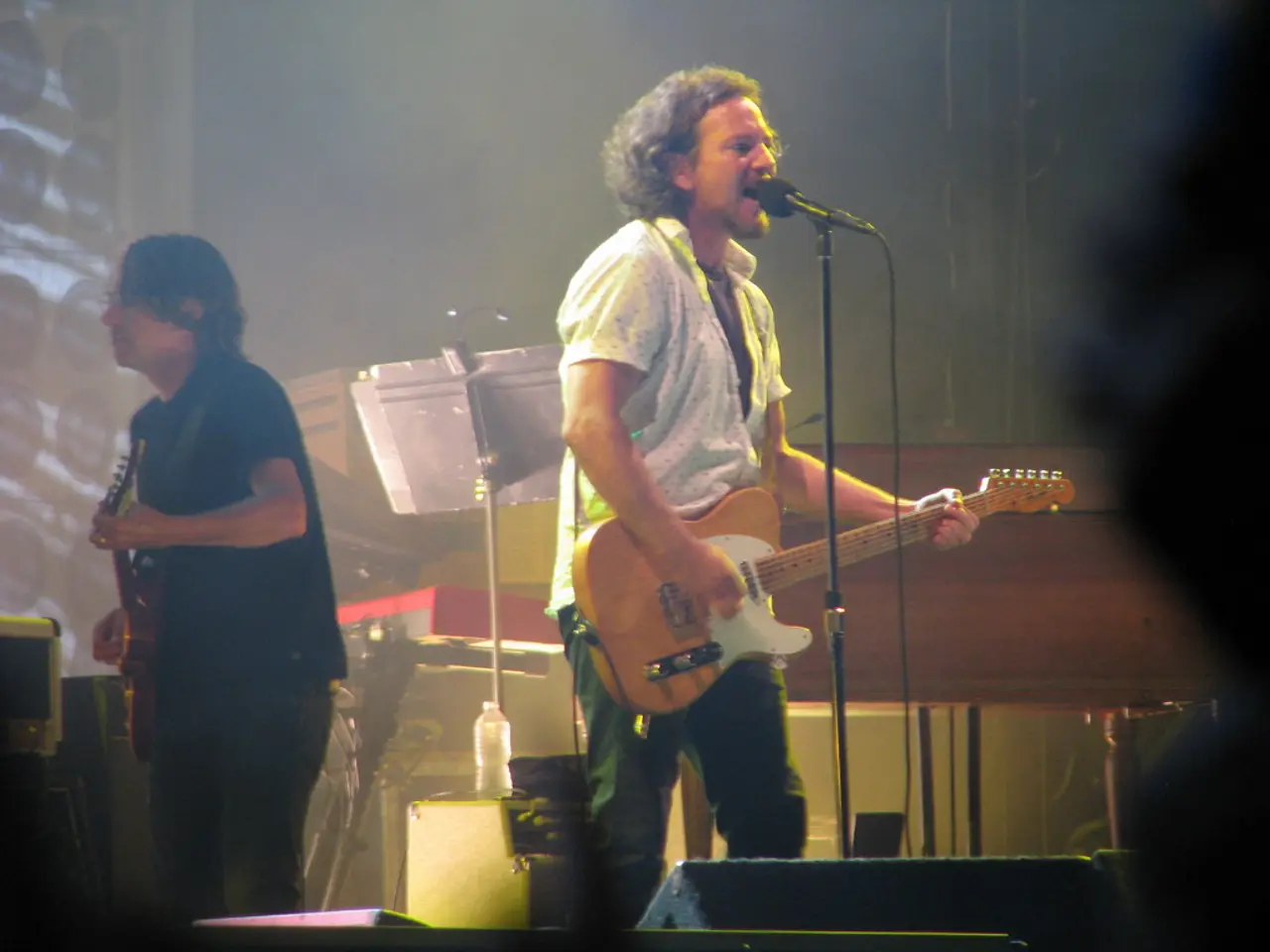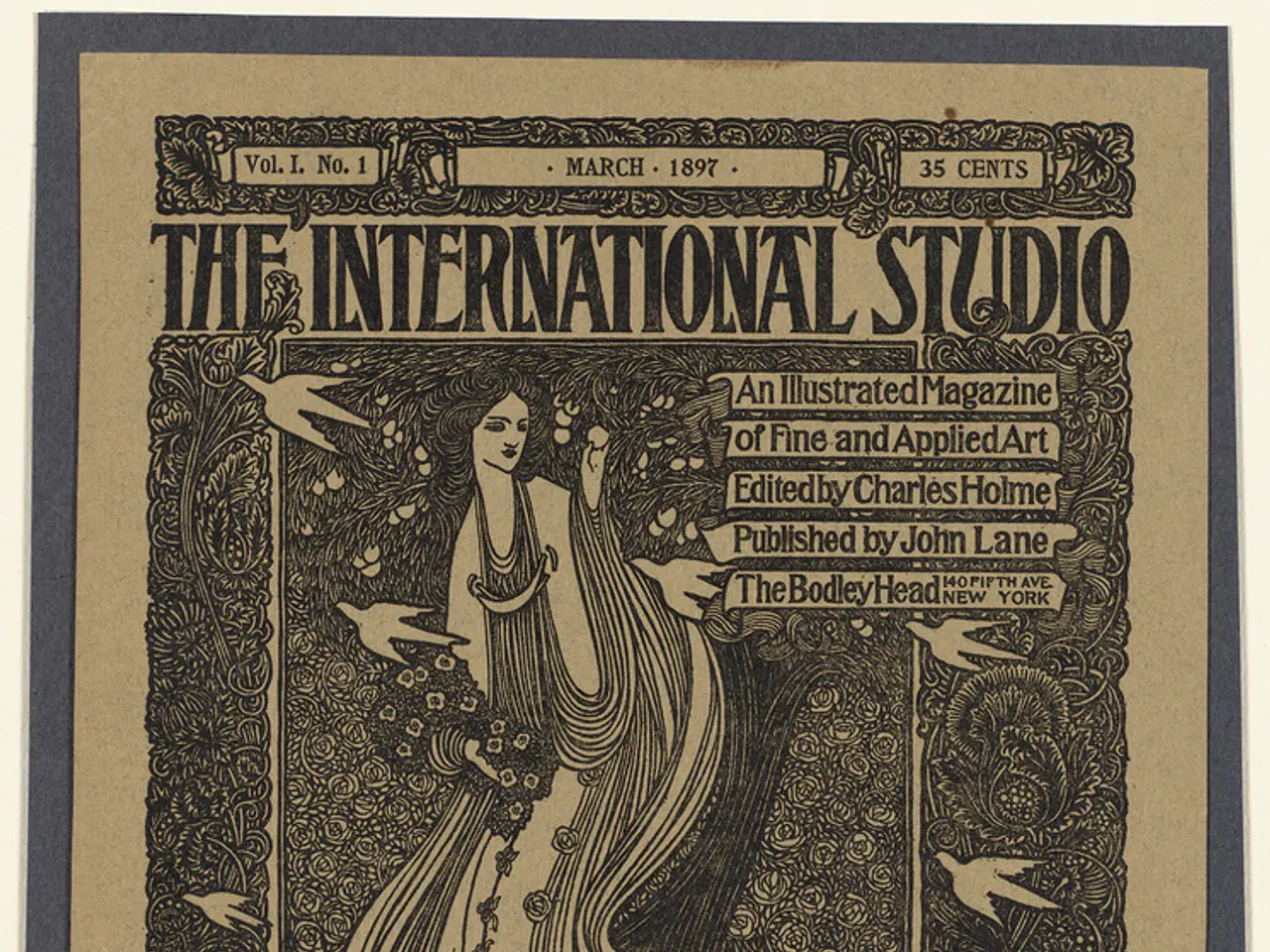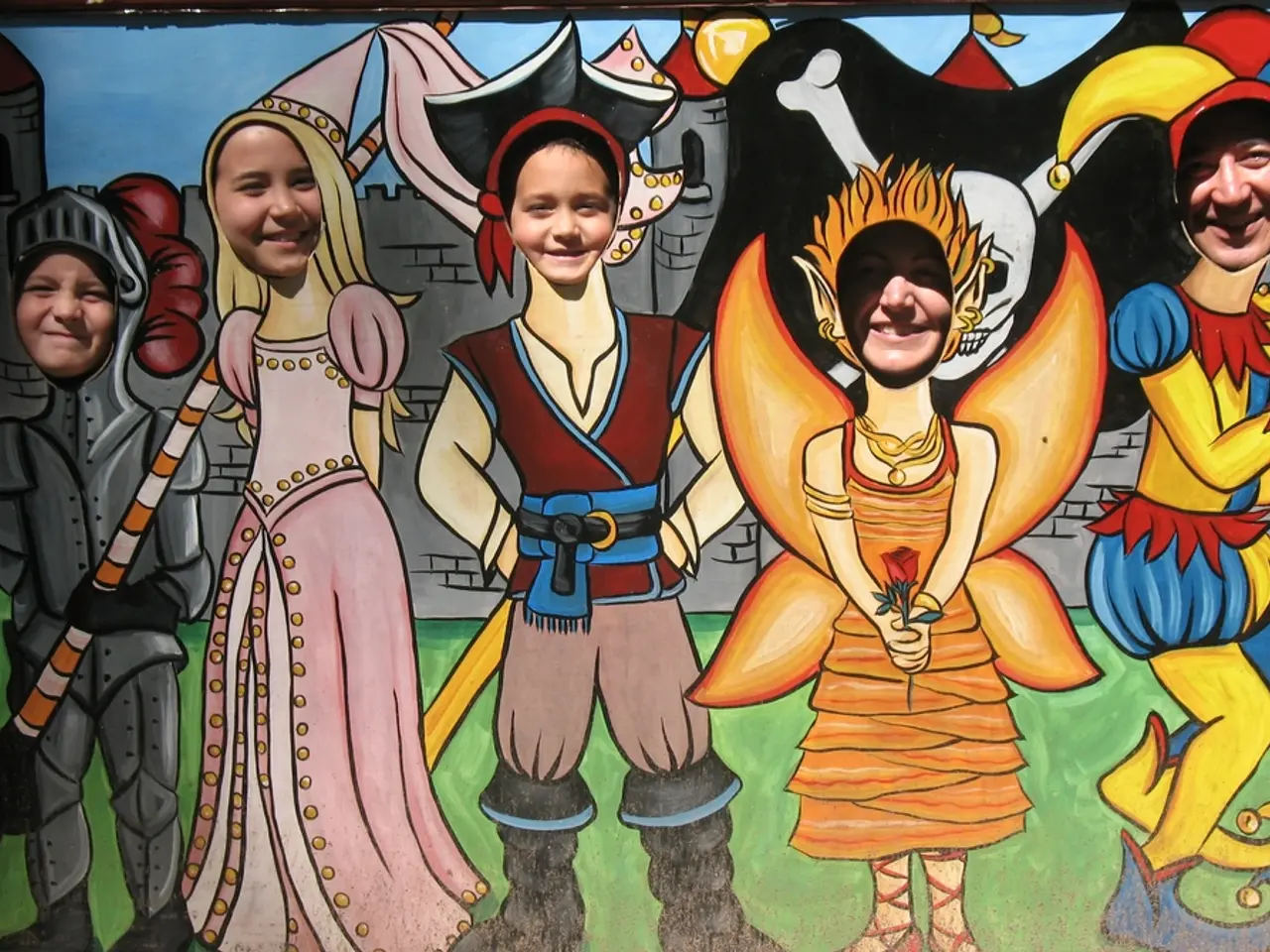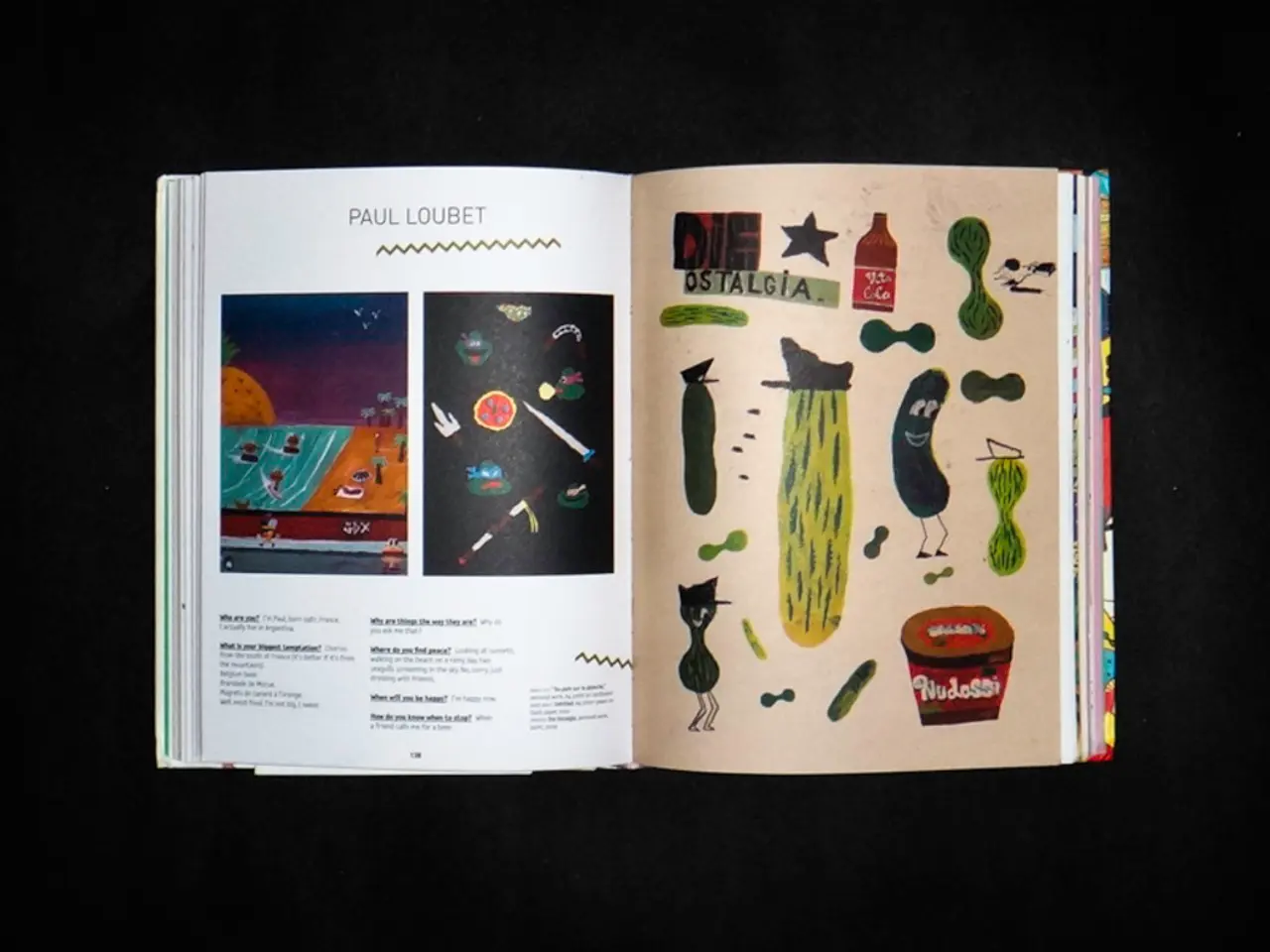BBC's alterations in broadcasting live music events raise apprehensions among music trade associations.
The BBC's decision to alter its music broadcasting and streaming in response to Bob Vylan's pro-Palestinian and anti-Israeli chants during their Glastonbury performance has ignited a heated debate, with experts suggesting that the regulatory system is effective in managing such situations.
During their performance on June 28, the punk rap duo led the crowd in controversial chants, prompting the BBC to take immediate action. However, the specific changes to music broadcasting and streaming have not been detailed, making it challenging to assess whether these actions were arbitrary or disproportionate.
The BBC has confirmed that it will continue to bring audiences a diverse range of music performances, both live and on-demand, but has made changes to its livestreaming of music events to prevent similar incidents in the future. Tim Davie, BBC Director-General, ordered the content not to be featured in any other coverage, and the broadcaster's future plans for livestreaming music events will be shaped by these changes and their editorial guidelines.
The BBC spokesperson stated that Bob Vylan's offensive behaviour during the Glastonbury livestream was unacceptable and apologised for the offensive content that appeared on the BBC. The stream was available on the BBC iPlayer for about five hours due to a technical issue.
Warnings appeared on the stream on two occasions, and the editorial team decided not to cut the feed, which was an error, according to the BBC. The BBC stands by its respect for artists' freedom of expression, but the changes to livestreaming music events are intended to ensure that such incidents do not occur in the future.
However, not everyone agrees with the BBC's decision. Music trade bodies, including The Featured Artists Coalition and The Musicians' Union, have accused the BBC of making "arbitrary and disproportionate" changes to its broadcasting and streaming of live music events. David Martin, head of the Featured Artists Coalition, a UK trade body that supports music artists, stated that the BBC is overreacting, while Naomi Pohl, general secretary of The Musicians' Union, expressed concern about the potential impact on artistic freedom.
The Featured Artists Coalition believes that such a step towards censorship is dangerous, finding the idea of preemptively grading artists according to their risk factor arbitrary and disproportionate. Pohl emphasized the importance of the BBC in the music industry and the potential negative effects of fewer live events due to risk avoidance.
Both Tim Davie and BBC chair Samir Shah have apologised for the incident, acknowledging the need for balance between free speech, public order, and respect for diverse perspectives. As the debate continues, it remains to be seen how the BBC will navigate this complex issue in the future.
The heated debate over the BBC's decision to alter its music broadcasting and streaming policies has extended to include critiques from the music industry. Various music trade bodies have accused the BBC of making arbitrary and disproportionate changes, with the Featured Artists Coalition expressing concern about potential censorship and the Musicians' Union cautioning against the impact on artistic freedom.






